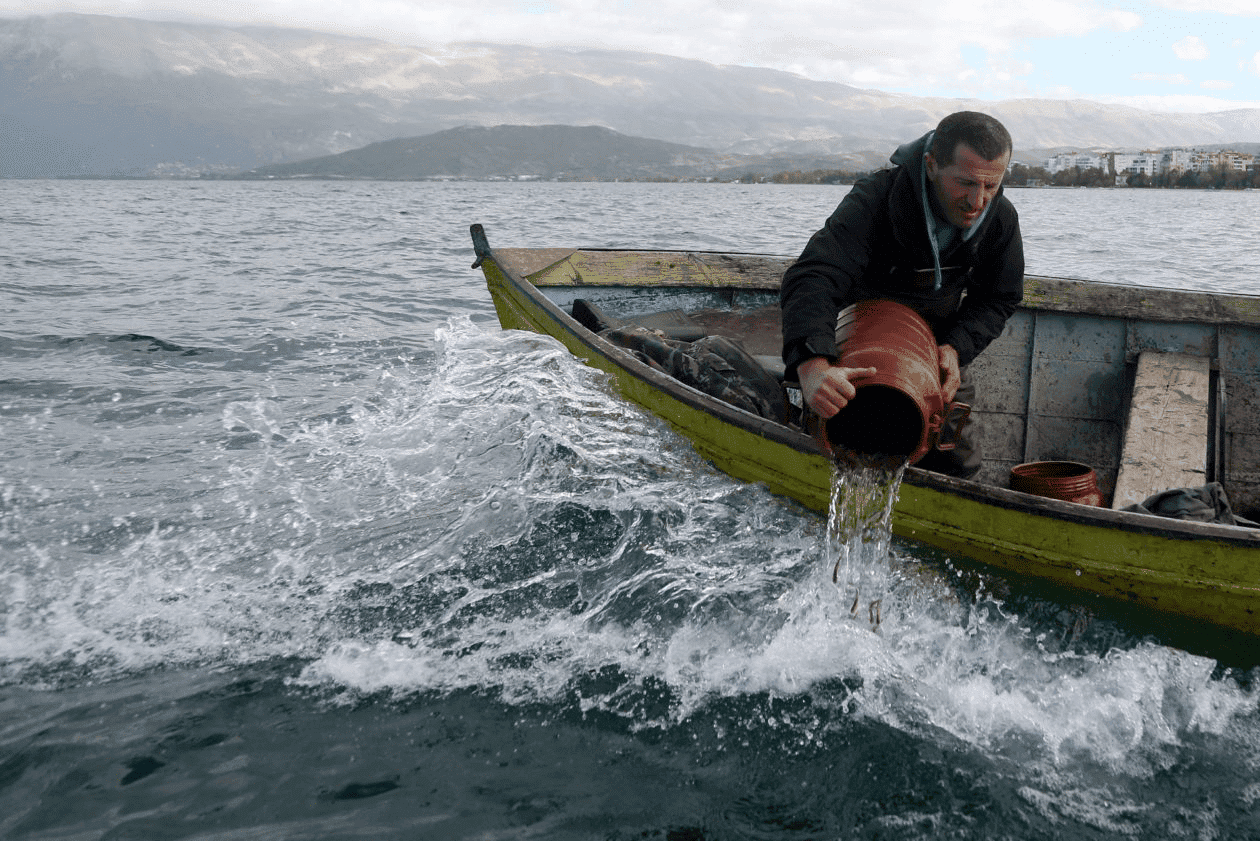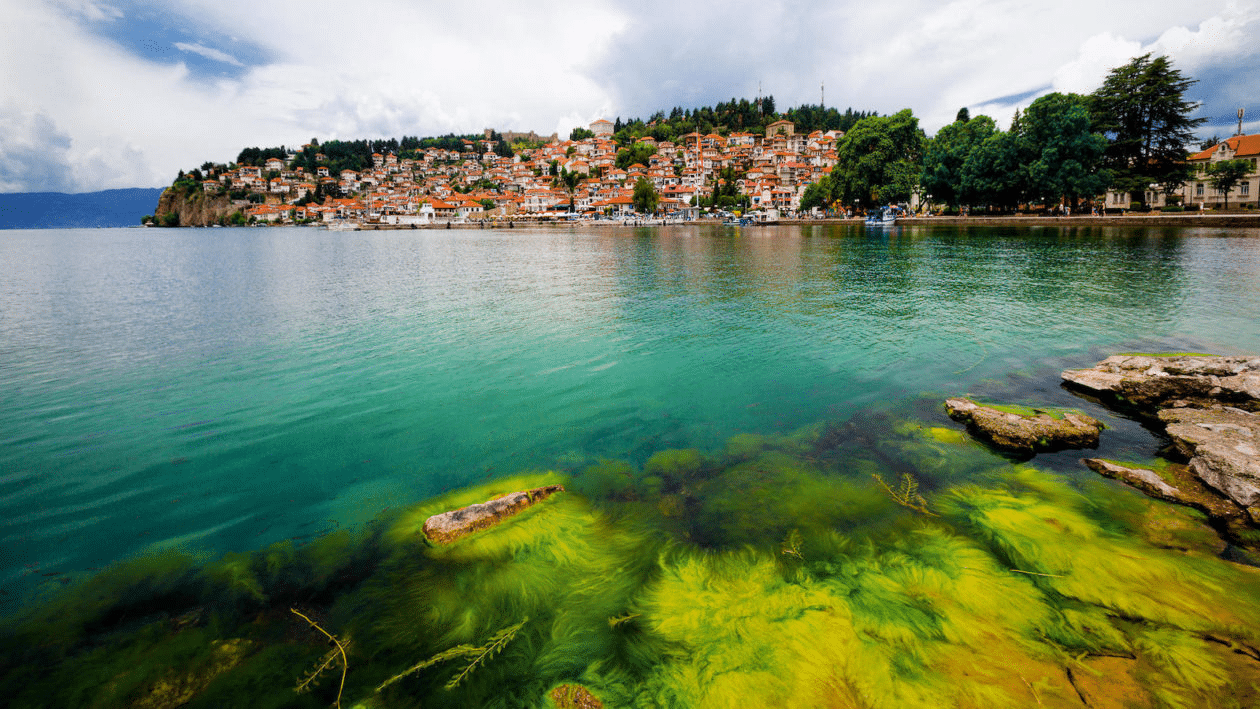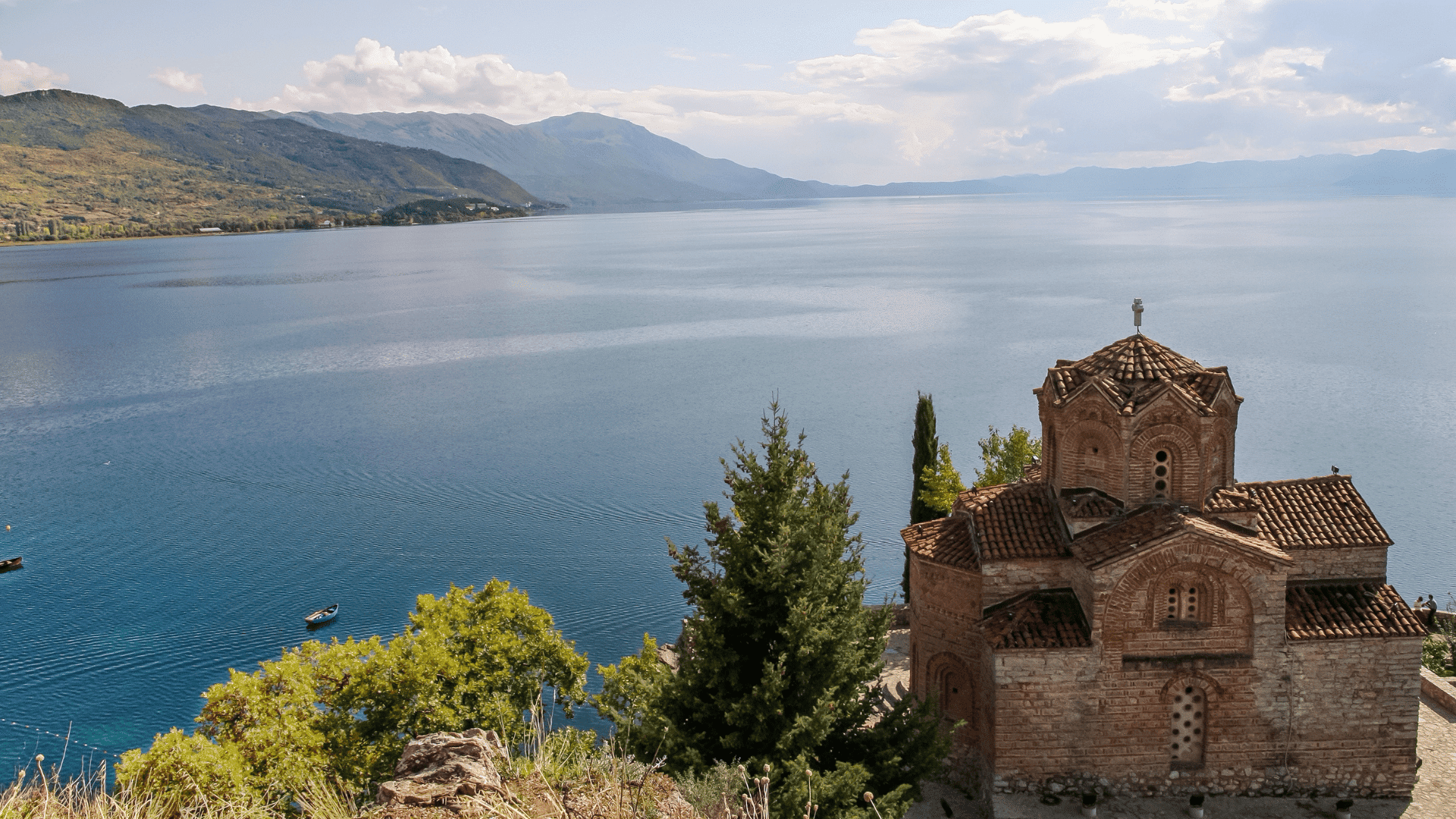Lake Ohrid, located between North Macedonia and Albania, is one of Europe’s oldest lakes, with a history that goes back over two million years. It’s not just a beautiful spot—it’s also home to an incredible variety of plants and animals, many of which can only be found there. But this unique ecosystem is under threat from pollution, overdevelopment, and climate change, putting its delicate balance at risk. Protecting Lake Ohrid has never been more important.
What Makes Ancient Lakes So Special?
Most lakes are geologically young, usually forming within the last 10,000 to 20,000 years. But ancient lakes have been around for thousands to millions of years, making them unique.
These lakes are home to one-of-a-kind ecosystems, with species that have evolved over millions of years. They also hold layers of sediments with fossils that give us clues about Earth’s past climates and history. Besides their scientific importance, ancient lakes have been essential water sources and hold cultural value for many communities.
Because of their stability over time, ancient lakes are great for studying how ecosystems adapt to climate change. Their natural beauty also draws in tourists, which helps drive conservation and supports local economies.
Lake Ohrid’s Fragile Future
Lake Ohrid is a rich ecosystem that’s been thriving for nearly two million years, home to over 1,200 species, including 212 that can’t be found anywhere else. But its clear waters and natural beauty are now at risk due to nutrient pollution, invasive species, overfishing, and unchecked tourism and construction. These problems are made worse by a lack of proper oversight and the growing impact of climate change.

A fisher releases young Ohrid trout back into the Albanian portion of Lake Ohrid. Source credit: Getty Images

Source credit: Getty Images
Preservation of the Ancient Gem
Ancient lakes like Ohrid are not only ecological treasures but also vital parts of our cultural heritage, hosting rich biodiversity and centuries of history. Protecting these ecosystems from further damage requires joint efforts from local governments, businesses, and communities.
At LG Sonic, we are dedicated to supporting initiatives that engage and educate future generations about the importance of Lake Ohrid, aiming to leave them with a thriving ecosystem instead of one at risk. Sustainable tourism and stricter regulations are essential to stop habitat degradation.
Effective pollution management and investment in eco-friendly technologies are crucial to protect the lake’s biodiversity and ensure it can be sustainably used by future generations. Comprehensive, real-time water monitoring is the first step to addressing problems like pollution, algal blooms, and nutrient overload. LG Sonic’s solar-powered MPC-Buoy exemplifies this approach, combining water quality monitoring with ultrasound technology to control harmful algal blooms without chemicals.
This solution has been successfully used in over 60 countries and plays a key role in restoring biodiversity by creating healthier aquatic environments that support a wide range of species.
Conclusion
Protecting Lake Ohrid is crucial not only for preserving its unique biodiversity but also for maintaining the region’s ecological balance and cultural heritage. Collaboration between local governments, businesses, and communities is key to adopting sustainable practices that will help safeguard this ancient lake for future generations.
By focusing on effective pollution control and investing in innovative water management technologies, we can tackle the threats facing the lake and work to restore its clear waters. Lake Ohrid’s survival relies on our shared commitment to environmental care and responsible tourism, ensuring its legacy as a biodiversity treasure continues to thrive.
